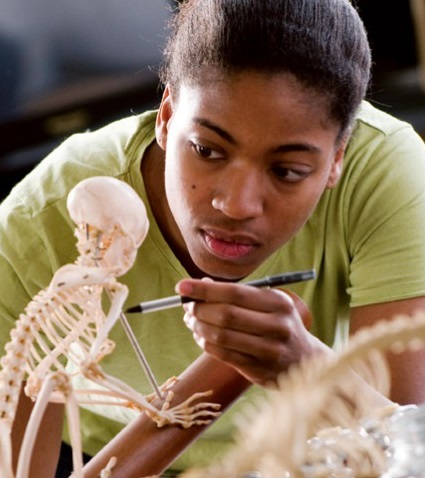STEM stereotypes hurt
 A new study says masculine stereotypes of STEM subjects corrupt the self-concept of female students and their career aspirations.
A new study says masculine stereotypes of STEM subjects corrupt the self-concept of female students and their career aspirations.
German researcher Professor Bernhard Ertl took a closer look at challenges in STEM fields in the new study "The Impact of Gender Stereotypes on the Self-Concept of Female Students in STEM Subjects with an Under-Representation of Females" published in Frontiers for Psychology.
The study involved 296 women from different German universities who are all enrolled in a STEM programme with less than 30 per cent females.
“We were astonished that stereotypes about STEM still corrupt the self-concept of female students who already crossed several barriers and found their way into a STEM subject with a quite low proportion of females,” Professor Ertl says.
Even though the students participating in the study presumably had good grades in STEM, stereotypes still corrupted their self-concept.
The STEM career path is considered untypical by many of the students' social environments and in some instances, was met with surprise or even scepticism. One of the reasons for this might lie in stereotypes that attribute females' achievements to diligence instead of talent.
Professor Ertl expands; “Stereotypes are grounded in society and therefore it is important for us to know the effect of our stereotypes on individuals' self-concepts, achievements and career decisions”.
The study points to the fact that family can have a negative impact on female students’ self-concept and initiatives that directly seek to support the students may actually backfire and reinforce the stereotypical views instead.
Indirect support has proven to be more effective. This involves for instance giving children the opportunity to have positive experiences in science related subjects or by giving them the chance to meet role models that are enthusiastic about their STEM professions. Such measures may boost the self-concept of female students in STEM programmes, more so than direct encouragement.
“We should realise that supporting students may have ambiguous effects,” said study co-author Professor Manuela Paechter.
“Consider this paradox: If we perceive a student as not sufficiently gifted by the standards of our implicit stereotypes, we may communicate this opinion subconsciously whilst at the same time giving them support. Even if well intentioned, such behaviour will foil the hoped-for effects. Instead, teaching subjects like physics while linking them to how they explain daily life phenomena could attract more girls (and also more boys).”







 Print
Print